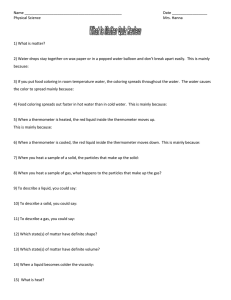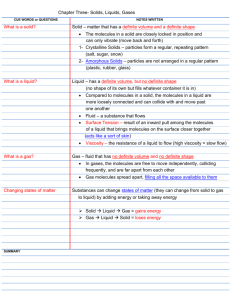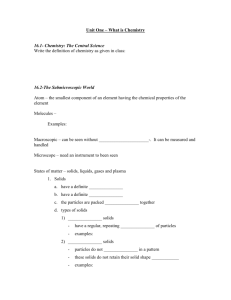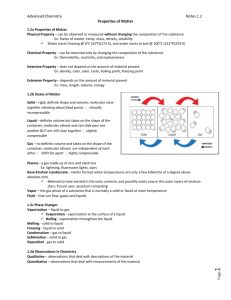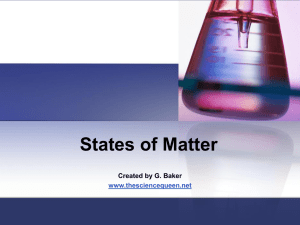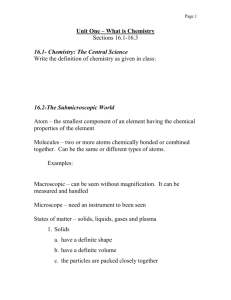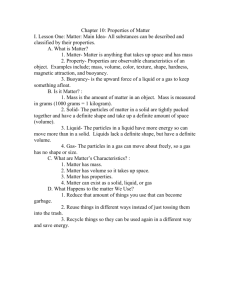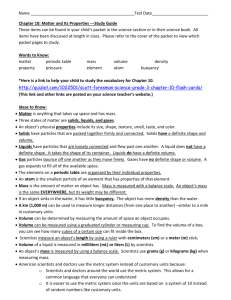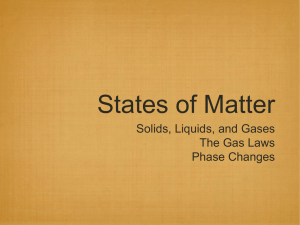Study Notes for Physical Properties of Matter
advertisement
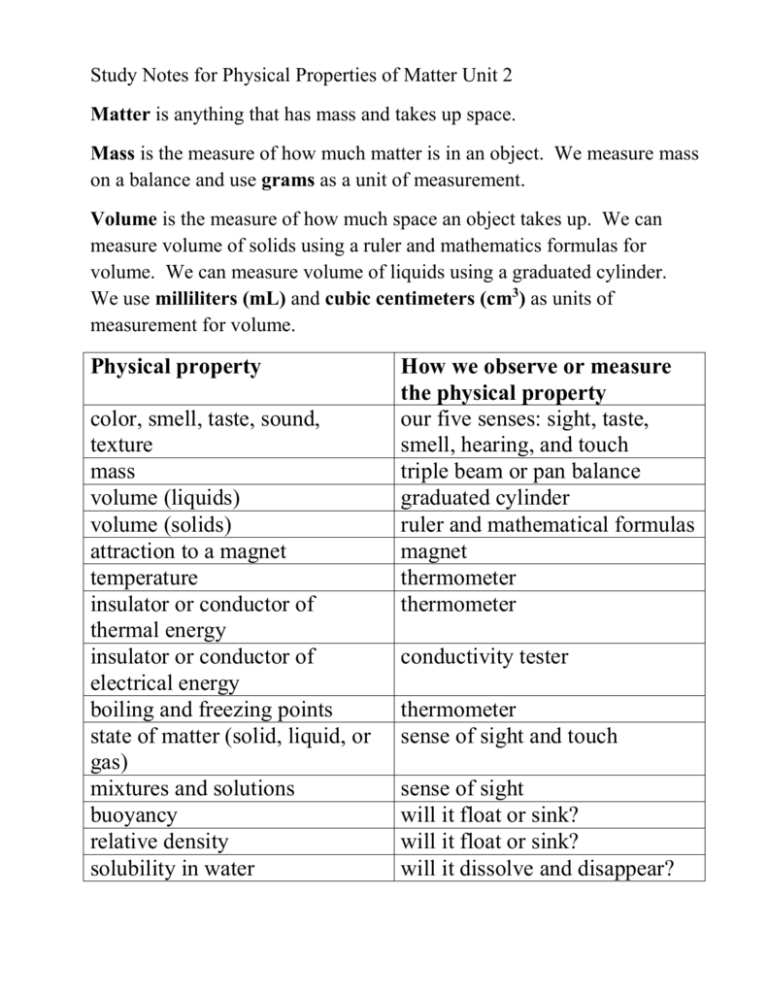
Study Notes for Physical Properties of Matter Unit 2 Matter is anything that has mass and takes up space. Mass is the measure of how much matter is in an object. We measure mass on a balance and use grams as a unit of measurement. Volume is the measure of how much space an object takes up. We can measure volume of solids using a ruler and mathematics formulas for volume. We can measure volume of liquids using a graduated cylinder. We use milliliters (mL) and cubic centimeters (cm3) as units of measurement for volume. Physical property color, smell, taste, sound, texture mass volume (liquids) volume (solids) attraction to a magnet temperature insulator or conductor of thermal energy insulator or conductor of electrical energy boiling and freezing points state of matter (solid, liquid, or gas) mixtures and solutions buoyancy relative density solubility in water How we observe or measure the physical property our five senses: sight, taste, smell, hearing, and touch triple beam or pan balance graduated cylinder ruler and mathematical formulas magnet thermometer thermometer conductivity tester thermometer sense of sight and touch sense of sight will it float or sink? will it float or sink? will it dissolve and disappear? 3 States, or Phases, of Matter Gases- have no definite shape or volume. They have definite mass. The particles are not touching, vibrate, and move freely to fill any space just by moving farther and farther apart. Liquids- take the shape of their container, have definite volume and mass. Particles are more loosely packed than solids, vibrate, and can slide past each other. Solids- hold their shape, have definite mass and volume. Particles are packed tightly together and are vibrating in place. Check for Understanding 1. _____________ is anything that has mass and takes up space. 2. Which tool(s) would you use to measure mass? 3. Which tool(s) would you use to measure volume? 4. What is the boiling point of water? __________________________ 5. What is the freezing AND melting point of water? _______________ 6. Properties of matter that can be easily observed and measured using normal means are called _______________________ properties. 7. Circle ALL the ones that are physical properties: volume mass liquid state attraction to magnet freezing point temperature insulator color smell texture solid state buoyancy boiling point conductor taste sound gaseous state magnetic 8. The unit of measurement for mass is the ___________________. 9. The unit of measurement for volume is the ___________________ and the ____________________. 10. Liquid volume is measured in __________________________. 11. Solid volume is measured in ___________________________. 12. Volume is the __________________________________________ _________________________________________________________ 13. Mass is the ____________________________________________ _________________________________________________________ 14. Which materials are attracted to a magnet? a. metals that contain iron, nickel, or cobalt b. plastic c. all metals 15. If a substance is soluble, or dissolves, in water, the particles get smaller and smaller until they _____________________. 16. A solution is a special kind of _________________________. 17. A mixture can be easily ___________________________ using different methods. 18. Some methods we used to separate mixtures in class are: ____________________________________________________ ____________________________________________________ ____________________________________________________ ____________________________________________________


